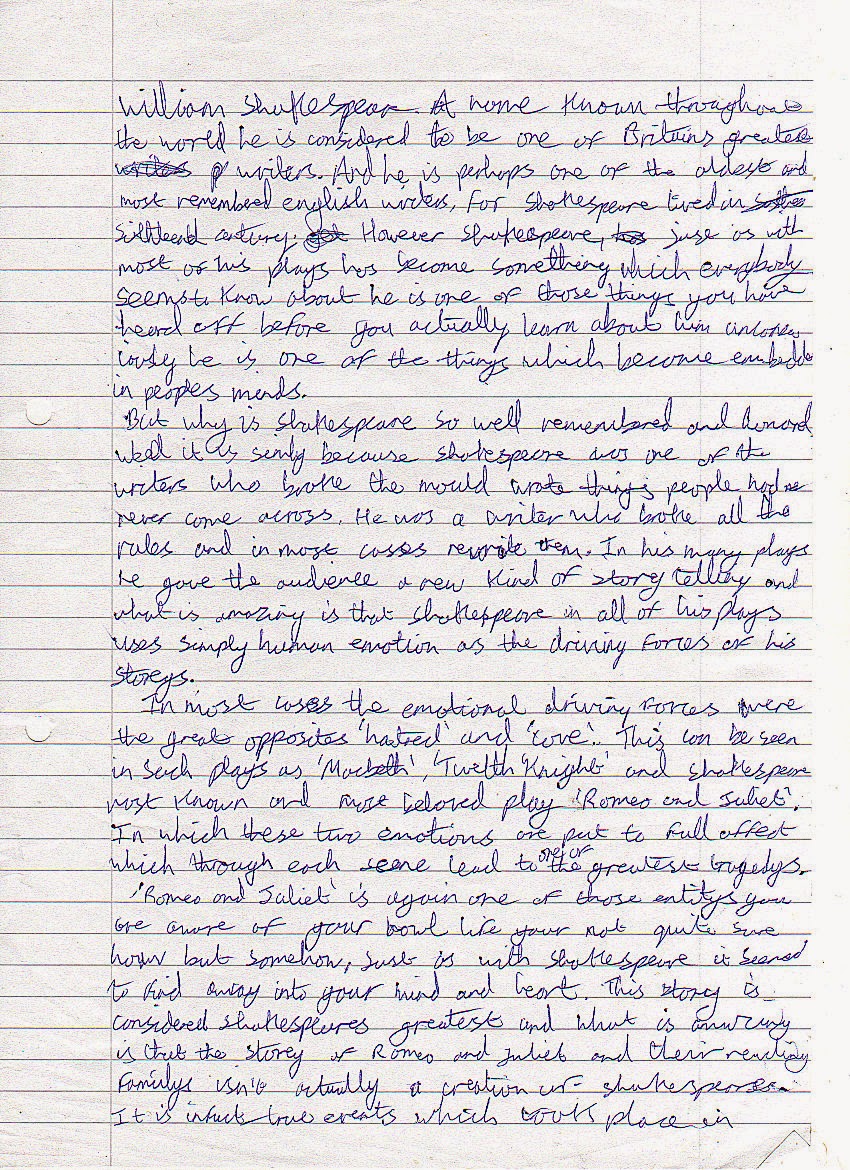I was very fortunate with my year 10 English class, because the teacher, Mr
Rowley, the school's resident psychopath, was a Film and Media tutor in
disguise.
In his english class we would either watch him pelt out of the classroom chasing after the latest student who had dared to disrupt his teaching or we would be watching films and discussing their textual form, their place in popular culture and our reception of them.
In his english class we would either watch him pelt out of the classroom chasing after the latest student who had dared to disrupt his teaching or we would be watching films and discussing their textual form, their place in popular culture and our reception of them.
Whether it was Psycho, The Birds, Educating Rita or Romeo + Juliet, that year 10 english class really did start me consciously thinking about how films are more than just popular entertainment; that is the class where my incination for the film and media studies field can really be said to have been born - I really did enjoy that class!
Here I have decided to present my very first piece of film essay writing from that class: Walking the High Wire.
It an unfinished essay that I wrote somewhere in 2004 or 2005, when I was 14 or 15.
It was written for a Shakespeare assignment in which we had to explore and answer the following starting points:
"why did Baz Luhman feel he needed to update Shakespeare to a modern day setting? Why did he feel the need to Americanise it? In this essay I will try to explain this by analysing both the film and the play."
It remains unfinsihed because:
- as with everything I do, it got a little out of hand (longer than it needed to be with no clear end in sight).
- Nobody else in the class bothered to finish theirs (if they had even bothered to start in the first place).
- The assignment did not count towards my marks at the end of the year.
The title, Walking the High Wire, comes from a behind-the-scenes extra on the Moulin Rougue DVD, in which Ewan McGregor describes the Baz Lurhmann experience as being like walking the high wire. Had I bothered to finish the essay, I would have established this connection when I discussed Lurhmann's overall filmc style in relation to his later Moulin Rouge (a film I went absolutely nuts for when I first saw it).
 |
| For my research, I even got hold of the opening sequence's section of the film's shooting script - it was the first time I had ever read a script! |
This essay is hugely significant, because it signifies and records my first foray into film analysis; as such, it is very simplistic and comes from a period when I was still struggling with my writing.
However, in the essay I do manage to orchestrate a linear textual analysis and deconstruction of the opening sequence of Romeo + Juliet in comparison to Shakespeare's original Romeo and Juliet.
Mostly the essay makes the age-old novice mistake of just being a description of the opening sequence, but amongst that transcription there is reasoning of how the various filmmaking elements of the opening sequence come together to convey meaning, there is some background on Shakespeare, there is some speculation on why Shakespeare's works have endured so long and there are even some diagrams - love a diagram!
I may even type it up someday, but for the time being, here are scans of the original handwritten essay, this is where the Film Studies cogs really did start to turn...
 |
| Page 1 |
 |
| Page 2 |
 |
| Page 3 |
 |
| Page 4 |
 |
| Page 5 |
 |
| Page 6 |
 |
| Page 7 |
 |
| Page 8 |
 |
| Page 9 |
 |
| Page 10 |

No comments:
Post a Comment